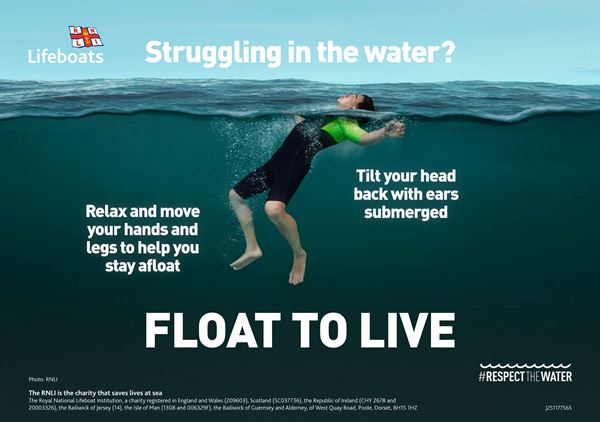Staying safe around water
Whether you're heading to the coast, enjoying a walk by the river, or spending time near lakes or canals, it's important to stay alert and informed. Water can be dangerous - even in warm weather or shallow areas. Every year, accidents happen that could have been avoided with a few simple precautions.
Key safety tips
- Respect the water – Cold water shock can happen in any open water, even on hot days.
- Supervise children – Always keep young children within arm’s reach around water.
- Never swim alone – If you're swimming outdoors, always go with someone and let others know where you are.
- If you’re heading to the beach, check the tides before you set out – Morecambe Bay can be dangerous, particularly due to the fast-moving tides, soft shifting sands, and deep channels.
- Avoid alcohol near water – It affects judgement, balance, and reaction times.
- Wear buoyancy aids – When boating or paddleboarding, always wear appropriate buoyancy aids.
- Never jump or dive into water – you don’t know what’s below the surface.
- Be cautious near weirs and locks - they can create powerful currents that are extremely hazardous.
- Keep dogs on leads near the water and do not jump in after them if they fall in. Tragically, people often drown trying to help and the dog gets out safely by itself.
What to do in an emergency

- Call 999 – Ask for Coastguard (if at the coast) or Fire and Rescue (inland). Try to give a specific location if possible - check nearby signage for details.
- Do not enter the water – Try to reach or throw something to help instead.
- If you fall in, float to live – Lie on your back, keep calm, and control your breathing.
Learn more: RNLI’s “Float to Live” advice.
Additional resources
- HM Coastguard
- RNLI (The Royal National Lifeboat Institution)
- RLSS (Royal Lifesaving Society)
- United Utilities
View United Utilities guidance on reservoir safety
- Canal & River Trust
View Canal & River Trust waterway safety advice
Last updated: 30 June 2025
